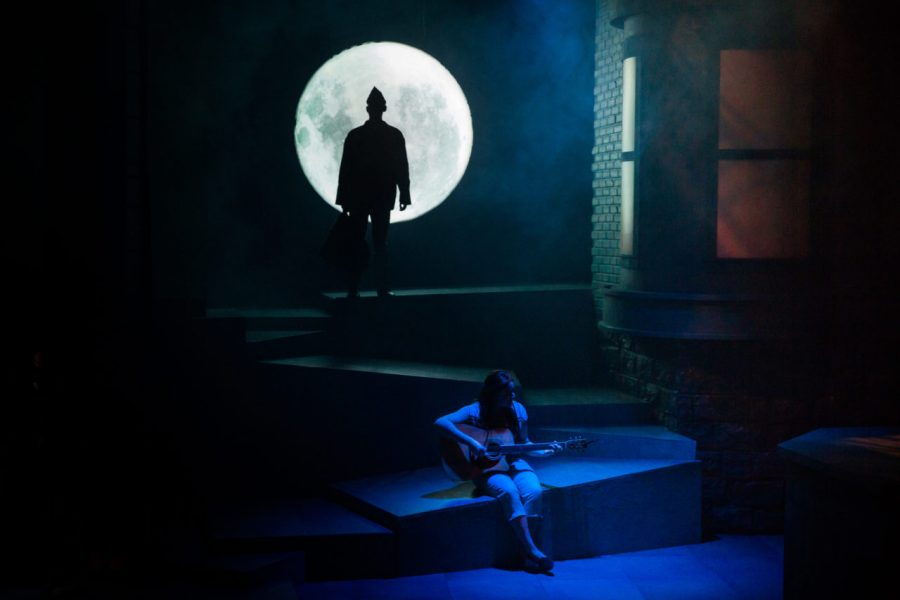“Dogfight’s” story, chronicling experiences of masculinity, war and love, opened this past weekend at Babcock Theatre. Representing the Department of Theatre’s final musical of the season, “Dogfight” is more than the love story it seems.
The show, based on the 1991 movie by the same name, follows the young Marine Eddie Birdlace and his fellow recruits, all about to leave the U.S. for the war in Vietnam. As the men explore options for how to spend the evening, they decide to host a dogfight— a party where each man tries to find the ugliest girl and the winner receives a cash prize. Eddie searches and after no luck discovers Rose Fenny working at a diner. He decides to take Rose to the party, but realizes she’s quickly falling for him. What’s worse though— he might be falling for her too.
The musical’s cast of U students demonstrates superb skill. Liz Terry shines as Rose, playing the complexity of Rose’s honesty and vulnerability with a voice that soars. Jesse Klick’s portrayal of Eddie Birdlace shows a distinct arc with the challenges of a young man sent to war, particularly when he finds it wasn’t what he expected. His fellow Marines, played by Javier Flores and Sky Kawai, give excellent performances with tight harmonies, despite the fact that their characters are often less than sympathetic; games about finding the ugliest girl are one example for why.
The entire ensemble similarly soared in performing complex music while keeping the narrative moving. Mikki Reeve’s performance as the rough-around-the-edges Marcy counters the softness of Terry’s Rose excellently. The shape-shifting skills of cast members Andy Harrison, Devin Rey Barney and U professor Sarah Shippobotham help keep the audience engaged by creating a variety of unique characters throughout the story.
The set, designed by Thomas George, makes full use of the Babcock’s limited space and creates a sense of San Francisco during the era. The lighting and sound design, created by David DeCarolis and Michael Horejsi respectively, also help the audience keep track of place and time. The narrative moves quickly from busy street corner to Rose’s bedroom in a flash and the design provides clear paths for the audience to follow.
Despite solid performances, “Dogfight” struggles occasionally with connecting the story to its historical context. Western ideas of masculinity have shifted culturally from the time of the Vietnam War, and so the portrayal in “Dogfight” feels startling. From insistences that sexual activity leads to “manhood” to a problematic portrayal of a young American Indian woman, many moments in “Dogfight” do not follow more modern sensitivities. This is certainly not a failing of the production— the story calls for these performances— but audiences may benefit from more preparation and understanding of the history the show portrays.
“Dogfight” plays in the Babcock Theatre through Feb. 19, with a post-show discussion on Feb. 10 and a panel following the show on Feb. 17. More information and tickets can be found at http://theatre.utah.edu/productions/dogfight/. As always, tickets for this Department of Theatre show are free to U students with a UCard/ArtsPass.


